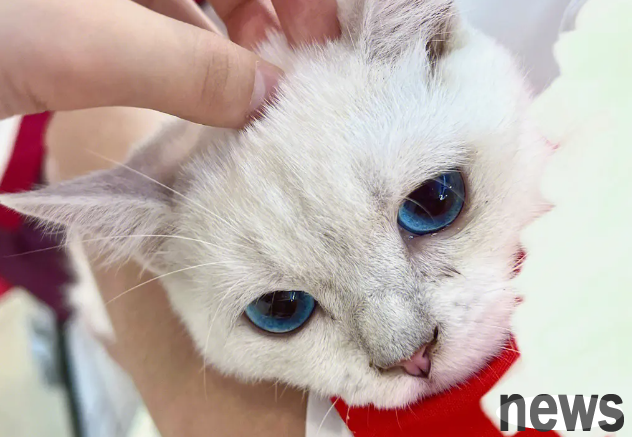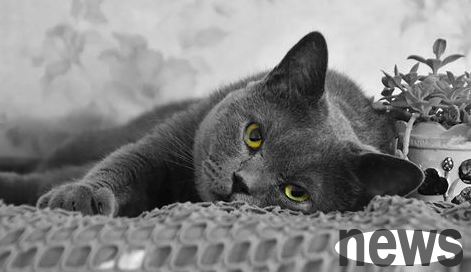Every cat owner who raises a cat should have experienced the cat vomiting. However, every time a cat vomits, in addition to cleaning up the "mess" it leaves, it is more important to understand why it vomits and whether it needs to see a do...
Every cat owner who raises a cat should have experienced the cat vomiting. However, every time a cat vomits, in addition to cleaning up the "mess" it leaves, it is more important to understand why it vomits and whether it needs to see a doctor.

Is the cat vomiting sick or normal?
First of all, we need to figure out whether cat vomiting is physiological or pathological. Physiological vomiting in cats is a normal phenomenon, and it is a body's self-protection mechanism. If a cat feels that the things in the stomach cannot be digested or irritated, it will vomit it out by itself. Moreover, the cat's stomach is close to the throat, and the vomiting function is also very powerful, and it will be fine after vomiting. If it is pathological vomiting, it will be more troublesome. It may be due to a disease in the body. It is recommended to send it to the hospital for treatment as soon as possible.
Vomiting frequently occurs in cats in winter. Is this a disease? Because the causes of pathological vomiting are too complicated, it is recommended to send it to the hospital for treatment. Here we will focus on physiological vomiting.
The physiological vomiting of cats is mainly caused by the following reasons. If the cat vomits, it needs to be treated in a targeted manner according to different situations.
1. Eat too fast
If a cat eats too fast, it will cause vomiting immediately. The owner should pay attention to the amount and time interval of feeding, and do not let the cat be "over hungry" before the next meal. You should also pay attention to the size of cat food particles. If it is too large, it will not be convenient for cats to eat.
2. Indigestion
Cats have relatively fragile stomachs, especially for kittens under three months of age. If they vomit and have loose stools, but their appetite and spirit are good, it may be caused by indigestion. If it is recommended that little cats do not feed dry food for the time being, you can feed some goat milk for cats or dry food soaked in goat milk, or you can consider feeding some wet food for cats.
If it is an adult cat, it is recommended to fast within 24 hours. If the vomiting is not serious, you can drink water freely. If the vomiting is severe, you need to be banned and feed it asymptomatically. You can appropriately add some cat-specific probiotics to the cat food.
3. Food allergies or poisoning
There are many things that cats cannot eat, such as beef and mutton, seafood, corn, soybeans, wheat gluten, chili, etc., which can easily cause food allergies.
Chocolate, onions, alcoholic products, caffeine products, xylitol products, etc. can cause cat poisoning, which may cause cats to vomit. If you find that the cat at home has vomited or even diarrhea, you should check whether the cat has accidentally eaten these things.

4. Hair spitting ball
Cats love to clean and lick their hair anytime and anywhere. While licking the hair, due to the special structure of their tongue, they will swallow the hair into their stomachs. After accumulating for a period of time, they will spit it out by themselves. If you spit out a felt-like curl, you should be spitting out a hair ball, which is normal.
If the hairballs accumulate too much in the belly, or if the cat is old and weak, it will be difficult to vomit, and in severe cases, it will even require surgery to take it out. To avoid this, you can feed the hair cream 2-3 times a week and often help it comb the hair to remove floating hair.
For cats, although physiological vomiting is a self-protection mechanism, it will also have some impact on the cat's body. It is inevitable for cats living in the wild to eat bad things, but for domestic cats, if the owners can provide the right food, this problem can be largely avoided.
As carnivores, cats need a lot of protein and fat to provide energy, but do not have much demand for carbohydrates, and some cereal ingredients may also cause food allergies in cats. Their fragile stomachs cannot withstand the tossing of chemical additives, which can easily cause indigestion and even gastrointestinal diseases.
Therefore, when choosing cat food, cat owners must pay attention to the problems of raw materials and additives. If there is a problem with cat food, not only will vomiting occur, but also your health will be affected.